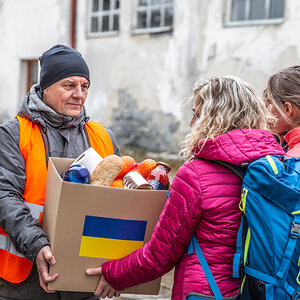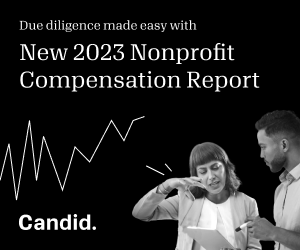Supporting civil society and democracy in Ukraine and beyond

The Open Society Foundations have been funding civil society groups in Ukraine since our founder, George Soros, launched the Kyiv-based International Renaissance Foundation (IRF) in 1990. Today, in the face of Russian president Vladimir Putin’s aggression, our foundations’ commitment to the independence of a democratic Ukraine is stronger than ever.
But what does that mean? It means stepping up our support for those we have always supported in Ukraine—the civil society groups that have reinforced Ukraine’s democratic development, particularly since the Maidan uprising of the winter of 2013-14. Through our locally led foundation, we have been providing around $8 million annually in grants to these groups, working on everything from fighting corruption, to defending independent media, to helping Ukraine’s response to COVID-19, and promoting the rights of citizens.
So what are we doing now? With Ukrainian cities under attack, with more than a million civilians already fleeing the country and more terrors ahead, the international community is engaged in a massive humanitarian relief effort. But there’s another desperate need—to support the continued existence of the civil society groups in Ukraine and elsewhere in the region that provide the life blood of democracy, and who are now under threat from Putin.
To that end, we have committed $25 million to set up a new Ukraine Democracy Fund, which will focus on this broader effort of resistance and opposition to Putin’s assault on democracy. We are calling on other funders, from both the philanthropic world and private sector, to join us, and hope to at least quadruple the total available to the fund to some $100 million.
To understand why this is so important, consider the state of the Russian Federation:
The Open Society Foundations once operated in Russia, too, helping after 1990 to lead the fight against endemic tuberculosis in the country’s prisons, helping pay the salaries of scientists in the aftermath of the collapse of the Soviet Union, and supporting the treatment of drug users dealing with HIV/AIDS on the streets of Moscow and St. Petersburg. But over the past 20 years of his ascendancy, Putin has steadily suppressed all independent civil society groups. Some of the bravest human rights advocates and journalists have been brutally murdered. The leading opposition figure, Alexei Navalny, having survived a poisoning with a nerve agent, is in a penal colony. Foreign funders, including the Open Society Foundations, have been declared enemies of the state.
And so, with private media groups run by his oligarch cronies and enforced censorship, there is no public debate about the misuse of state power. There are no voices challenging the syphoning off of state resources for private gain. And there is no significant organized public opposition to this vicious assault on Ukraine—only silence.
There are other leaders across the region and around the world who aspire to this same level of absolute control, and who would seek to crush political debate entirely, or to use control of the media and the courts to intimidate, sideline, or even imprison critics. But the resulting risks to peace and stability from silencing all but assenting voices are now being demonstrated in Ukraine in the most painful way imaginable.
Ukraine’s future now is profoundly uncertain. Whatever the outcome, the world is likely to be reconfigured. At the Open Society Foundations, we expect the struggle for democracy and rights—and resistance to arbitrary top-down power—to continue and potentially to intensify. We know where we stand, and invite others to join us.
Viorel Ursu is a division director with the Open Society Foundations’ Europe and Eurasia program who has been involved in funding civil society groups in Ukraine for over two decades.
Find more articles in Philanthropy News Digest about philanthropy’s response to the war in Ukraine.
Find more updates and resources on Candid’s special issue page on the philanthropic response to the war in Ukraine.





